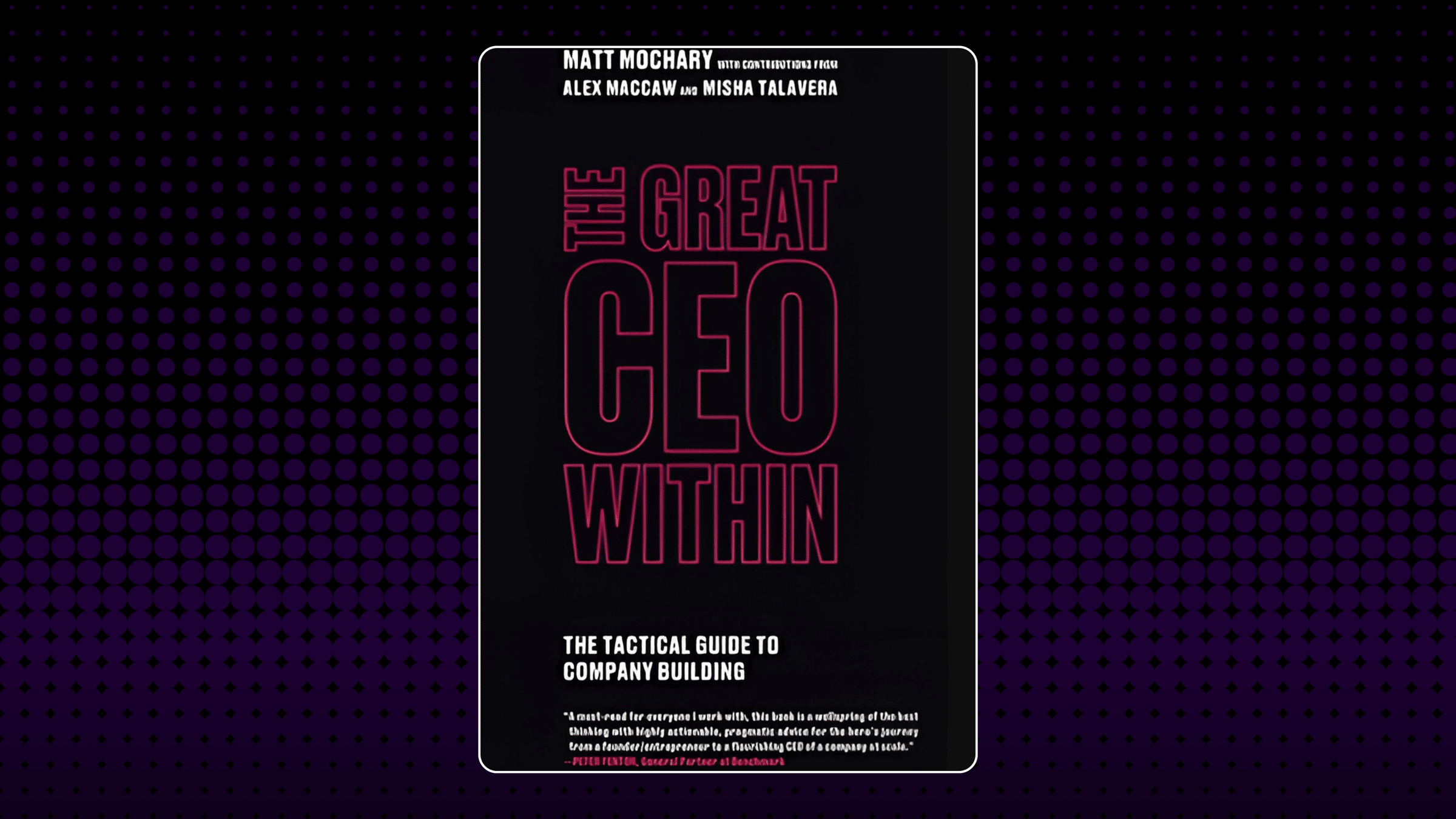

Hello there,
Most founders I speak to are grinding harder than they need to.
They’re trying to solve growth with more hours, more hustle, more pressure.
A couple of weeks ago, I wrote about being under-leveraged, the trap of leaning too heavily on effort and not enough on the systems that create scale.
Today, I want to take that further.
Because it’s one thing to know you’re under-leveraged…
It’s another to see exactly where you’re under-leveraged.
That’s where the founder’s leverage audit comes in.
Psychologists Daniel Kahneman and Amos Tversky discovered that humans are twice as sensitive to losses as we are to gains.
That’s why founders resist delegation and investment.
Hiring feels like “losing” cash.
Automation feels like “losing” control.
But here’s the paradox: by avoiding those “losses,” you’re locking in a much bigger one - a lost opportunity.
The leverage audit flips the script. It shows you where small, intentional “losses” (a slice of profit reinvested, an hour handed to a team member, a process automated) actually create exponential gains.

Every founder has four main levers:
Most founders lean heavily on one pillar and neglect the rest.
But scaling happens faster when you optimise across all four.
Think of it like a table: if one leg is weak, the whole thing wobbles.
Here’s what it looks like when each lever is weak:
Once you see it this way, it’s obvious why optimising all four levers is non-negotiable.
A consultancy I worked with last year was relying almost entirely on the founder's time and expertise.
Revenue had flatlined because they’d maxed out their hours.
Before the shift, the founder was working 70-hour weeks, still writing client reports by hand, and feeling like growth meant more exhaustion.
The shift?
After automation and capital investment, not only did revenue grow 40% year-on-year, but the founder was finally able to step into strategy, carve out two days a week for business development, and take their first family holiday in three years without fear that the business would stall.
Not because they worked harder, but because they leveraged smarter.
That’s leverage. That’s scale.
Cognitive psychology tells us the brain is wired for conservation of effort.
We cling to what feels safe (usually time and control) and avoid what feels risky (deploying capital, delegating, automating).
The way out of this trap is to build “disconfirming evidence.”
Every time you delegate, automate, or invest capital, and it works, your brain begins to rewrite its risk calculation.
That’s why the first small win is critical; it breaks the illusion that you’re the only one who can make it work.
It’s one thing to understand leverage.
It’s another to measure where you’re strong, and where you’re exposed.
That’s why I encourage every founder I work with to run a simple audit.
Because once you see the gaps clearly, the decision about what to do next becomes obvious.
Here’s how it works:
Score yourself 1–10 on each lever:
Now ask yourself: Which lever needs the most attention this quarter?
That single question will give you more clarity than any to-do list.
Here’s the mindset shift that makes the audit stick:
Instead of: “If I don’t do it, it won’t get done right.”
Try: “If I build the right leverage, it will get done better than if I did it myself.”
The first voice keeps you stuck in operations.
The second gives you permission to step into strategy.

If there’s one book I recommend every founder revisit regularly, it’s this one. Mochary lays out practical, no-fluff systems for building leverage across time, team, and tech.
It’s not just theory, it’s a playbook you can apply straight away. I’ve seen founders use it to cut weeks of trial-and-error and get clarity on how to lead at scale.
One practical takeaway: Mochary recommends a weekly CEO checklist, a simple rhythm of reviewing key metrics, checking in with your direct reports, and clearing bottlenecks. Done consistently, it creates a feedback loop that keeps you leveraged and out of the weeds.
If you haven’t picked it up yet, make it your next read. If you have, go back to it with fresh eyes, you’ll find something new every time you do. You can get your copy here
Imagine for a moment:
That’s the reality of a founder who’s fully leveraged.
And it starts with this quarter’s lowest score.
Your Move:
Score yourself on the four levers. Then hit reply and tell me your lowest score.
I’ll share one practical shift you can make to strengthen that pillar this quarter.
We’re shifting gears to talk about the hidden founder tax that drains businesses faster than cash burn, energy. I’ll share why treating energy like capital is the key to sustaining capacity without losing momentum, plus how one founder doubled ARR by restructuring their workload.
To your unstoppable success,

Writer, The Success Method





%20(1).webp)
.jpg)
